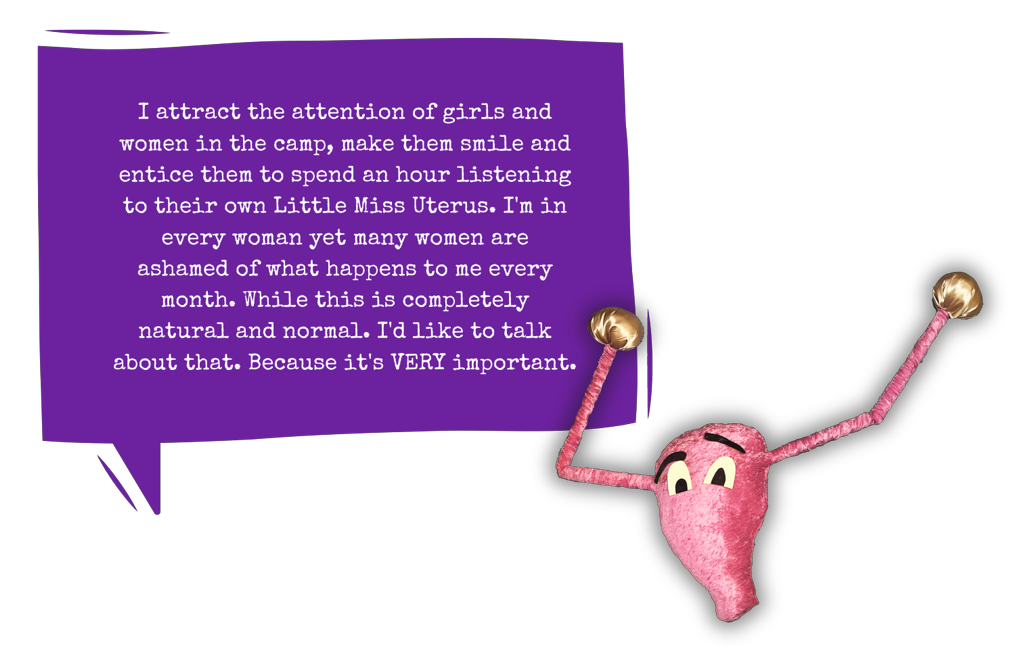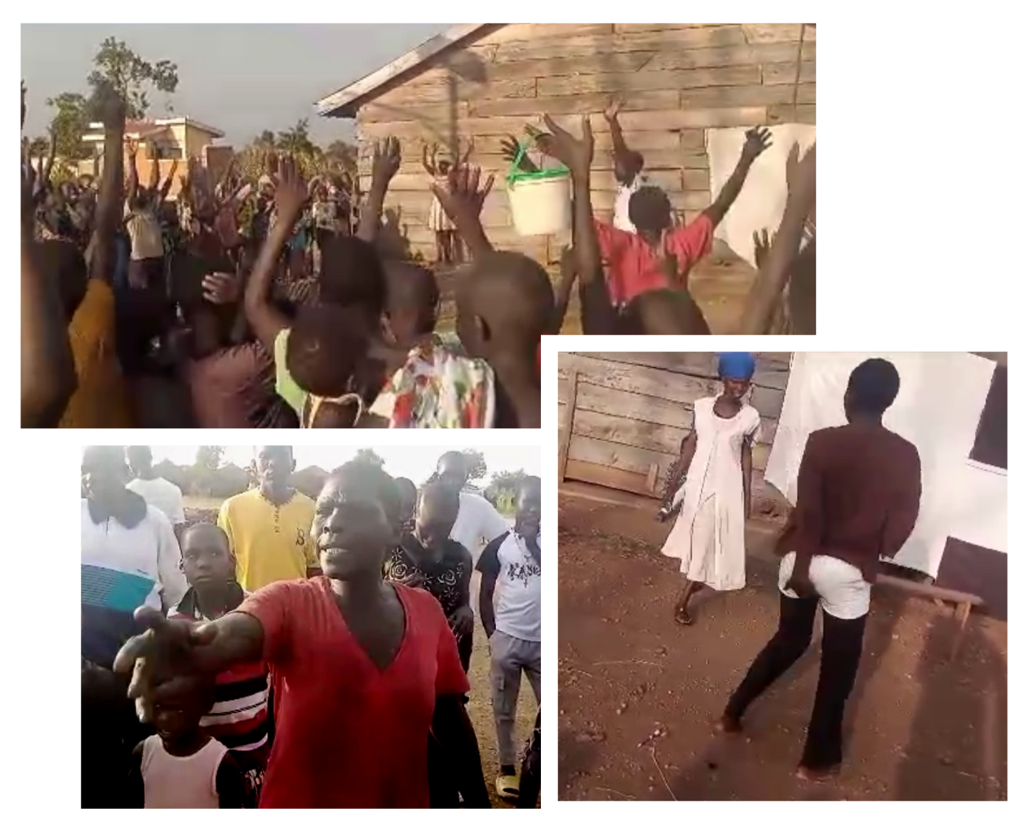Floor Blommestijn
The Dutch Red Cross presented me with the challenge to shift away from conventional handouts, which often results in wasting valuable resources, time, and money. It serves as a stark reminder of how agencies have often failed to meet the needs of the most vulnerable individuals. Instead, there was a call for a co-design approach that involves women in a refugee camp in North Uganda.
However, I found myself questioning my role in this endeavor. I come from a place of extreme privilege, being a white woman in Western society. I couldn't help but wonder if I was the right person for this task.
My objective is to challenge taboos and promote critical awareness around menstruation. Still, I also want to ensure that I am not imposing my own beliefs or disregarding the cultural norms and values of the refugees in the Rhino settlement. Navigating this challenge delicately involves finding ways to collaborate with the community, involve them in the design process, and respect their perspectives and experiences.
How to address a social problem through design without creating the solution myself?
In a period of 10 weeks, I worked on this project for the Dutch Red Cross. It focused on the Rhino camp settlement in North-Western Uganda, where more than 100.000 refugees reside. One initiative is the establishment of communal latrines. However, 40% of women and girls in the camp don’t use these latrines.
I aim to create an effective platform for strong local women to promote discussion about menstrual health and hygiene. To inspire individuals to continue the dialogue and dismantle the structures that perpetuate silence and taboos.
The Doula tour encourages collective problem-solving and community engagement. This collective effort helps break the isolation and stigma associated with silence and taboos by fostering a sense of solidarity and shared responsibility.
The Doula tour consists of strong local women who ensure sustainability and continuity in addressing taboos around menstrual hygiene. They are likely to have a long-term presence within the community, unlike formal organizations that may have limited funding or project timelines. This continuity is crucial for long-lasting behavioral change and breaking deeply rooted taboos.
I have been in contact with Karia tal Jubal group in the Rhino settlement. Together with the doulas from this group, the strong women that carry their community, I have designed a workshop to be carried out in the different districts within Rhino camp.
The workshop is based on three design provocations. These are visuals, scenarios or ideas meant to stimulate discussion and lead to more questions rather than answers.
- Miss Uterus : To help the doulas draw attention to attract a crowd for the workshop, I created Miss Uterus: a giant cartoonish uterus puppet to be carried around the waist that becomes her own character. Containing both humerous and provocative elements, Miss Uterus is an effective attention seeker.
- The myth cards: We’ve identified existing myths in the camp about menstruation and visualized them in cards, asking workshop attendees to state whether they are true or false.
- Forum theatre: Writing different provocative scenes which emphasize the challenges women face during menstruation in a refugee settlement. The doulas play the scene. Afterwards, they encourage the audience to intervene in the performance to change the outcome and explore diverse perspectives.







